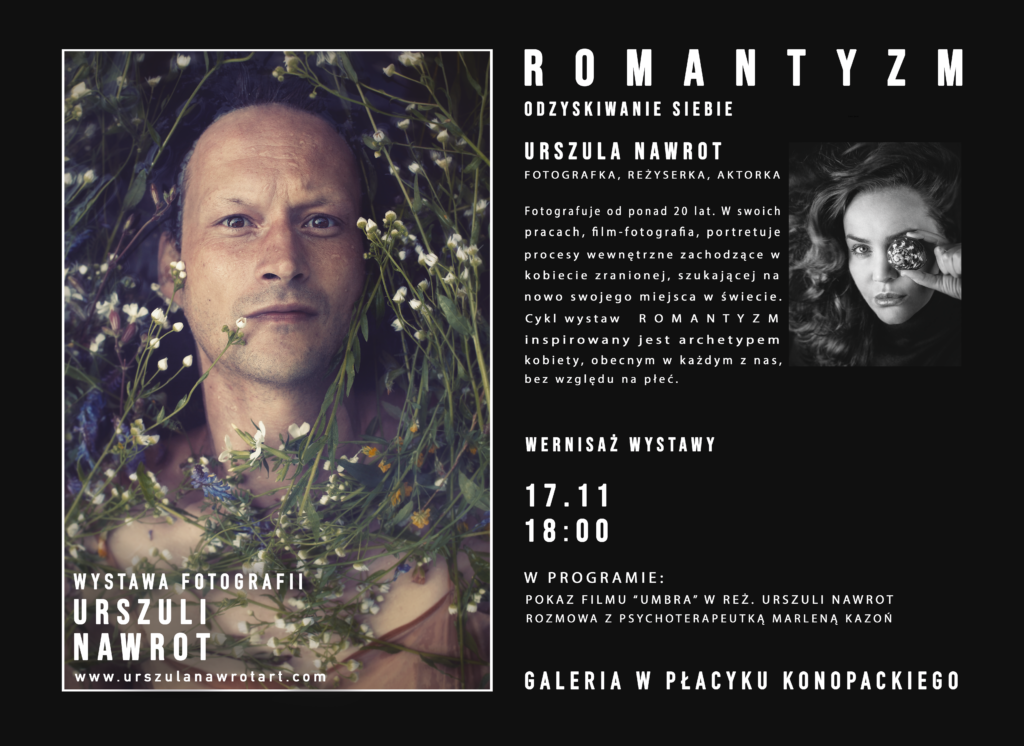ROMANTICISM. Reclaiming Yourself is inspired by depth psychology and the transformation of trauma, reflecting on the female archetype that resides in each of us, regardless of gender. Urszula Nawrot merges portraiture with landscapes to evoke the inner world of a wounded woman—one who seeks a new place in the world while grappling with social roles, archetypes, and personal suffering. Through her work, the artist raises profound questions: What is the nature of womanhood today? Does the path to freedom lie in fulfilling archetypes and social roles, or can one transcend them?
We live in a world of form—finite, closed, and defined—both biologically and socially. Today, we are witnessing a crisis of form, not only in the realm of femininity but also in masculinity, as these definitions often become the source of our suffering. We struggle and resist, attempting to expand and redefine these boundaries, frequently pushing beyond biological frameworks. But is it the form itself and its limitations that cause our suffering? Or is it our inability to truly connect with others, to remain sensitive in the face of the relational traumas we experience with those closest to us?
Wystawa ROMANTYZM. ODZYSKIWANIE SIEBIE, inspirowana jest psychologią głębi oraz problemem transformacji traumy. Urszula Nawrot łączy portret z pejzażem, dla pogłębienia stanu wewnętrznego, kobiety zranionej, szukającej na nowo miejsca w świecie, zmagającej się z rolami społecznymi, archetypami oraz własnym cierpieniem. Tym samym artystka zadaje pytania: Jaką jest dziś kobieta? Czy droga do wolności wiedzie przez realizację archetypu i roli społecznej, czy też można się od nich uwolnić? Żyjemy w świecie formy, a ta jest zawsze skończona, zamknięta i zdefiniowana. Zarówno biologicznie, jak i społecznie. Doświadczamy dziś kryzysu formy, zarówno w przestrzeni kobiecości jak i męskości, gdyż jest ona przyczyną naszego cierpienia. Szarpiemy się, miotamy, próbując poszerzyć jej definicję, wykraczając niejednokrotnie poza jej biologiczny schemat. Jednak czy przyczyną naszego cierpienia jest forma i jej ograniczenia, czy niezdolność do wrażliwości na drugiego człowieka, ciągłe doświadczanie traumy relacyjnej z najbliższym otoczeniem?

